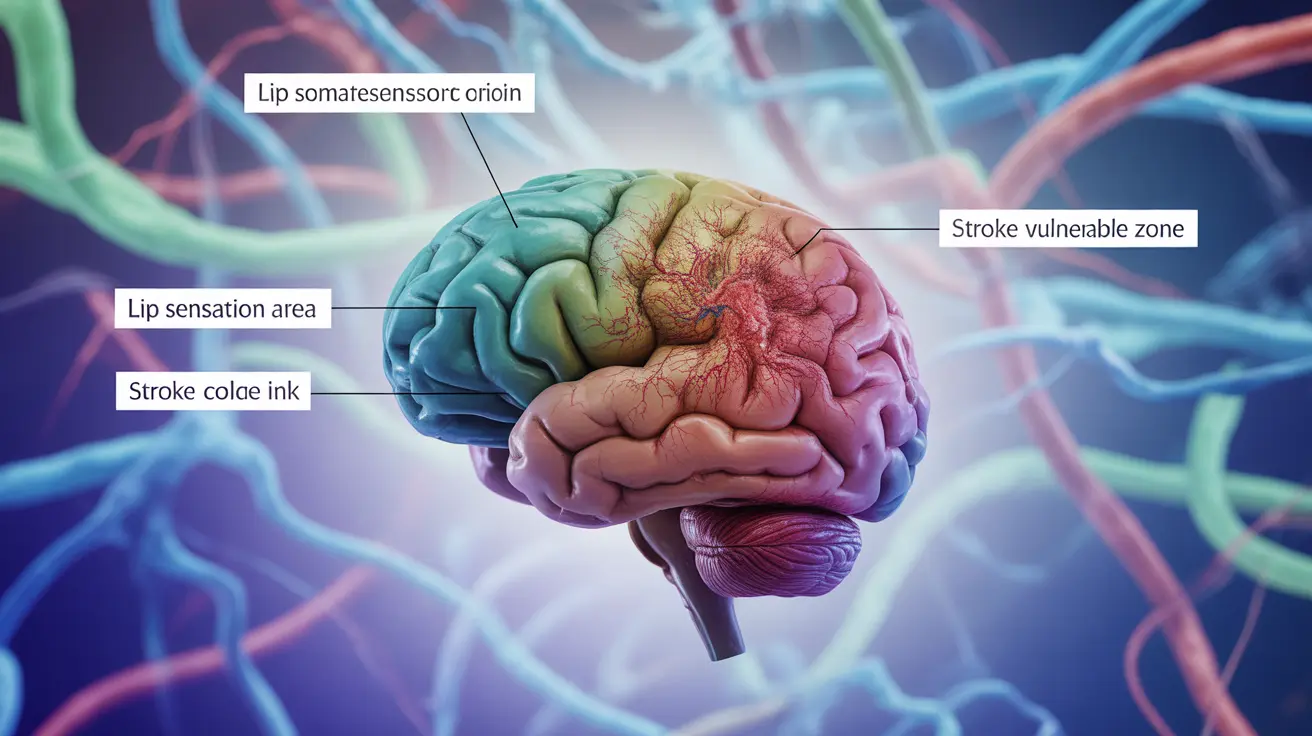Experiencing numb lips can be an alarming symptom that may indicate various health conditions, including potentially serious ones like stroke. Understanding the relationship between lip numbness and stroke, along with other possible causes, is crucial for recognizing when to seek immediate medical attention.
This comprehensive guide will explore the connection between numb lips and stroke, other potential causes, treatment options, and prevention strategies to help you make informed decisions about your health.
Understanding Stroke-Related Lip Numbness
When numb lips occur as a stroke symptom, they typically appear suddenly and are often accompanied by other neurological signs. This numbness usually affects one side of the face and may extend beyond just the lips, following a distinctive pattern that helps healthcare providers identify a potential stroke.
Key Stroke Warning Signs Beyond Lip Numbness
While lip numbness can be concerning, it's essential to recognize other stroke symptoms that often occur simultaneously:
- Facial drooping, particularly on one side
- Weakness or numbness in arms or legs
- Slurred or difficult speech
- Sudden confusion or difficulty understanding
- Visual disturbances
- Severe headache
- Balance problems or dizziness
Other Common Causes of Lip Numbness
Not all cases of lip numbness indicate a stroke. Several other conditions can cause similar symptoms:
Allergic Reactions
Allergic responses can cause lip swelling and numbness, often accompanied by:
- Itching or tingling sensation
- Visible swelling or inflammation
- Redness around the mouth
- Potential breathing difficulties in severe cases
Other Medical Conditions
Various health conditions may lead to lip numbness:
- Multiple sclerosis
- Bell's palsy
- Dental procedures or infections
- Anxiety or panic attacks
- Migraine headaches
- Exposure to cold temperatures
Treatment Approaches for Numb Lips
Treatment for numb lips varies depending on the underlying cause:
Stroke-Related Treatment
If stroke is suspected, immediate emergency medical attention is crucial. Treatment may include:
- Clot-busting medications (if administered within the appropriate time window)
- Emergency surgical procedures when necessary
- Rehabilitation therapy
- Ongoing medical management
Treatment for Other Causes
For non-stroke-related lip numbness, treatment focuses on addressing the underlying condition:
- Antihistamines for allergic reactions
- Anti-inflammatory medications
- Stress management techniques
- Specific treatments for diagnosed medical conditions
Prevention and Risk Reduction
Taking proactive steps can help reduce the risk of stroke-related lip numbness:
- Regular blood pressure monitoring
- Maintaining healthy cholesterol levels
- Regular exercise
- Balanced diet rich in fruits and vegetables
- Smoking cessation
- Limited alcohol consumption
- Stress management
- Regular medical check-ups
Frequently Asked Questions
Can numb lips be a sign of a stroke, and what other symptoms should I look for? Yes, numb lips can be a sign of stroke, especially when accompanied by other symptoms like facial drooping, arm weakness, speech difficulties, sudden confusion, vision problems, or severe headache. If these symptoms occur suddenly, seek immediate medical attention.
What are the common causes of numb or tingling lips besides a stroke? Common non-stroke causes include allergic reactions, anxiety, dental procedures, Bell's palsy, multiple sclerosis, migraines, exposure to cold, and certain medications. Each cause typically has distinct additional symptoms that help identify the underlying condition.
How do you treat numb lips if they are caused by a stroke or other conditions? Treatment depends on the cause. For stroke, immediate emergency medical care is essential, potentially including clot-busting medications and rehabilitation. For other conditions, treatment may involve antihistamines, anti-inflammatory medications, or specific treatments for the underlying condition.
What's the difference between lip numbness caused by a stroke versus an allergic reaction? Stroke-related numbness typically occurs suddenly on one side of the face and is accompanied by other neurological symptoms. Allergic reactions usually cause symmetrical swelling, itching, and may include additional allergy symptoms like hives or difficulty breathing.
How can I prevent or reduce the risk of experiencing numb lips due to a stroke or other health issues? Prevention strategies include maintaining healthy blood pressure and cholesterol levels, regular exercise, a balanced diet, avoiding smoking, limiting alcohol intake, and managing stress. Regular medical check-ups can help identify and address risk factors early.




